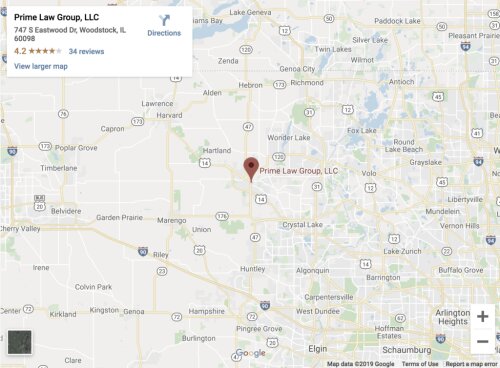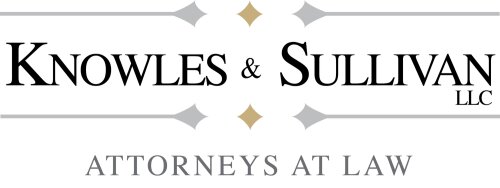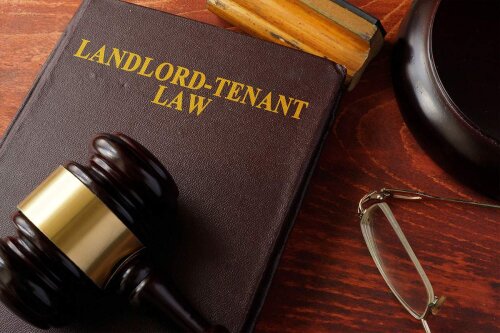Best Landlord & Tenant Lawyers in Alabama
Share your needs with us, get contacted by law firms.
Free. Takes 2 min.
Free Guide to Hiring a Real Estate Lawyer
Or refine your search by selecting a city:
List of the best lawyers in Alabama, United States
United States Landlord & Tenant Legal Questions answered by Lawyers
Browse our 2 legal questions about Landlord & Tenant in United States and read the lawyer answers, or ask your own questions for free.
- What is owner of condo units obligation as far as damage to the condo below their unit.
- The unit above my condo is managed by a Property Management company, and it was rented. During the time it was rented, there were water leaks that damaged my ceilings, and the Management Company. refuses to fix the ceiling so that it matches the rest of the ceiling. Even though... Read more →
-
Lawyer answer by Horus Legal Sulotion
Thank you for sharing the details of your situation. Based on the circumstances you described, you may have grounds to escalate the matter legally. You can file a case to request the appointment of a government engineer from Dubai Municipality...
Read full answer - How to protect property from squatters law
- Deed in my mom's name. She died 18 years ago. Son is named as administrator but not as owner. We live in USA so let Non relative live there for 45-50 year but had no formal contract. Let him live there free as long as he paid utilities and taxes.... Read more →
-
Lawyer answer by M BILAL ADVOCATES, CORPORATE & TAX CONSULTANTS
After completing probate to establish yourself as the legal heir, you can transfer the property title to your name and then grant them permission to reside there through a formal agreement. It is worthy to note that you can do...
Read full answer
About Landlord & Tenant Law in Alabama, United States
Landlord and tenant law in Alabama governs the legal relationship between property owners who rent out residential units and the individuals who reside in them. These laws specify the rights and responsibilities of both landlords and tenants, covering issues such as lease agreements, security deposits, repairs and maintenance, eviction procedures, and more. Alabama’s laws aim to create a balanced framework that protects both parties while enabling smooth rental transactions.
Why You May Need a Lawyer
Certain situations related to renting property can become complex or contentious, potentially requiring legal representation. Common reasons people seek a lawyer in Alabama landlord and tenant matters include:
- Disputes over unpaid rent or security deposit returns
- Eviction proceedings, whether as a landlord or a tenant
- Alleged lease or rental agreement violations
- Claims of unsafe living conditions or lack of repairs
- Questions about lease interpretation or negotiations
- Retaliation or discrimination claims
- Unlawful entry or harassment by the landlord
- Issues regarding subletting or assignment of lease
Attorneys experienced in Alabama landlord and tenant law can help clarify your rights, negotiate resolutions, and represent your interests in court if necessary.
Local Laws Overview
Alabama’s landlord and tenant laws are primarily outlined in the Alabama Uniform Residential Landlord and Tenant Act. Some key aspects include:
- Security Deposits: Landlords may request up to one month's rent as a security deposit, plus additional amounts for pets or changes requested by the tenant. Security deposits must be returned within 60 days after move-out, minus lawful deductions.
- Lease Agreements: Written leases are not strictly required for tenancies less than one year, but having a written agreement can help avoid disputes. Oral agreements are legally binding but harder to enforce.
- Notice for Entry: Landlords must provide at least two days' notice before entering the tenant’s rental unit, except in emergencies.
- Repairs and Habitability: Landlords are required to provide safe and habitable rental units, including basic utilities and repairs needed for health and safety.
- Termination and Eviction: Tenants and landlords must provide proper written notice before ending a tenancy. Eviction requires a legal process and cannot be conducted through self-help methods, such as changing locks or shutting off utilities.
- Retaliation Protection: Tenants are protected from landlord retaliation for exercising their legal rights, such as reporting code violations.
Frequently Asked Questions
Does a landlord need a written lease to rent residential property in Alabama?
A written lease is not legally required for month-to-month or short-term rentals, but it is highly recommended to avoid misunderstandings and provide clarity for both parties.
How much can a landlord charge for a security deposit?
In Alabama, a landlord can charge up to one month's rent for a security deposit, with additional amounts allowed for pets or specific tenant-requested modifications.
How soon must a security deposit be returned after a tenant moves out?
A landlord must return the security deposit within 60 days after the tenant vacates the property, minus any lawful deductions for unpaid rent or damages beyond normal wear and tear.
What are a tenant’s rights if a landlord fails to make necessary repairs?
Tenants in Alabama have the right to demand repairs for issues affecting health and safety. If the landlord does not act within 14 days of written notice, the tenant may terminate the lease or seek damages.
What is the process for evicting a tenant in Alabama?
A landlord must give proper written notice for nonpayment of rent or other lease violations. If the tenant fails to correct the issue, the landlord must file an eviction action in court. Only a court order allows for legal eviction.
Can a landlord enter a rental unit at any time?
No. Landlords must give at least two days' notice before entering, except in emergencies.
Can a landlord raise the rent at any time?
If there is a lease in place, the rent cannot be increased until the lease term ends, unless otherwise specified in the agreement. In a month-to-month tenancy, landlords must give 30 days’ written notice before raising the rent.
What protections exist against wrongful eviction or retaliation?
Alabama law prohibits landlords from evicting tenants in retaliation for reporting code violations or exercising other legal rights. Such eviction attempts can be challenged in court.
Who pays for repairs in Alabama rental properties?
Landlords are responsible for repairs needed to maintain a habitable living environment. Tenants must pay for damages caused by their own actions or by guests.
What should a tenant do if facing eviction?
If you receive an eviction notice, review the reason for the eviction, respond promptly, attend all court hearings, and seek legal advice or assistance if needed.
Additional Resources
The following organizations and agencies offer resources or assistance related to landlord and tenant law in Alabama:
- Alabama Legal Help - Provides information and forms for landlord and tenant issues
- Alabama State Bar Lawyer Referral Service - Connects individuals with qualified attorneys
- Alabama Center for Dispute Resolution - Mediation services for rental disputes
- Local city or county housing authorities - Assistance with housing disputes or regulations
Next Steps
If you are facing a landlord or tenant issue in Alabama:
- Review your lease or rental agreement carefully
- Attempt direct communication to resolve issues with the other party
- Document all communications and any property conditions with photographs or written records
- Research your rights under Alabama landlord and tenant law using reputable resources
- Contact local resources or legal aid services for guidance if cost is a concern
- If the dispute cannot be resolved, or if you are facing a court action, consult a qualified attorney who practices landlord and tenant law in Alabama
Taking proactive steps and understanding your legal rights can help you resolve landlord and tenant issues more effectively and with less stress.
Lawzana helps you find the best lawyers and law firms in Alabama through a curated and pre-screened list of qualified legal professionals. Our platform offers rankings and detailed profiles of attorneys and law firms, allowing you to compare based on practice areas, including Landlord & Tenant, experience, and client feedback.
Each profile includes a description of the firm's areas of practice, client reviews, team members and partners, year of establishment, spoken languages, office locations, contact information, social media presence, and any published articles or resources. Most firms on our platform speak English and are experienced in both local and international legal matters.
Get a quote from top-rated law firms in Alabama, United States — quickly, securely, and without unnecessary hassle.
Disclaimer:
The information provided on this page is for general informational purposes only and does not constitute legal advice. While we strive to ensure the accuracy and relevance of the content, legal information may change over time, and interpretations of the law can vary. You should always consult with a qualified legal professional for advice specific to your situation.
We disclaim all liability for actions taken or not taken based on the content of this page. If you believe any information is incorrect or outdated, please contact us, and we will review and update it where appropriate.
Browse landlord & tenant law firms by city in Alabama
Refine your search by selecting a city.














